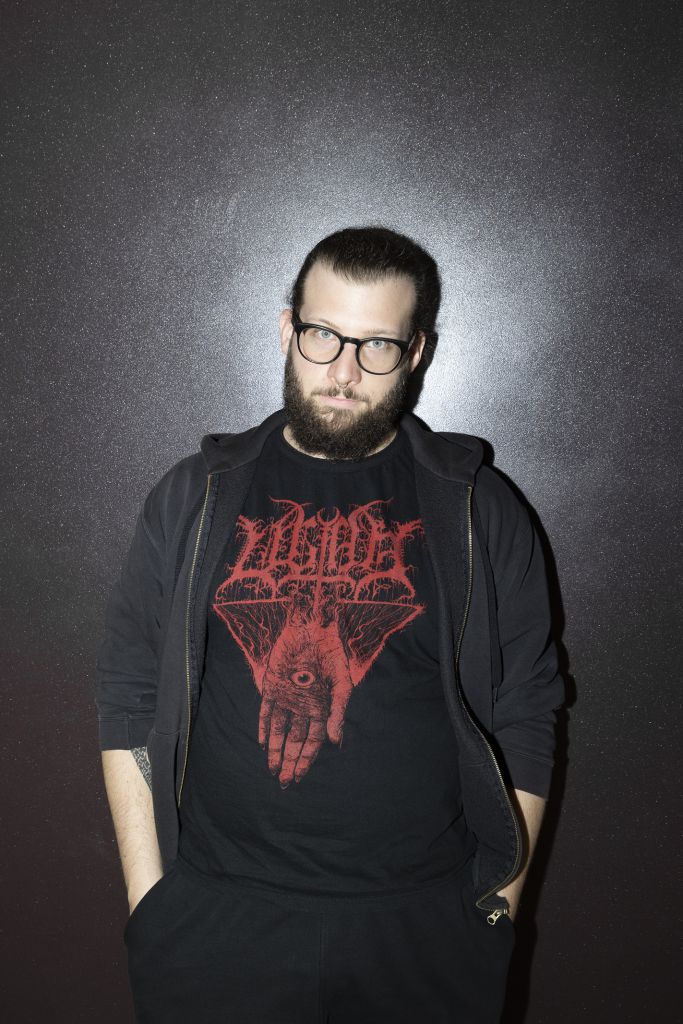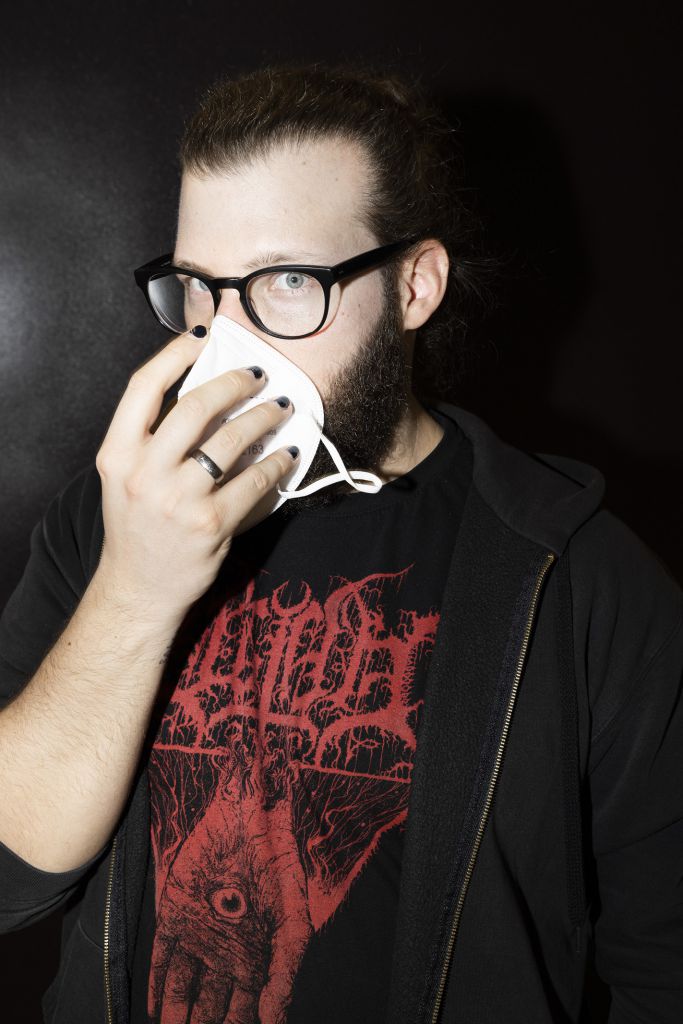Enrolled at the mdw since: 2017 (preparatory programme)/2018 (degree programme)
Area(s) of study: Media Composition and Applied Music, Electroacoustic Composition
Favourite place at the mdw and why: That depends a lot on the season and on what kind of day I’m having. I really like the two terraces of the new Future Art Lab, for instance. I can look across the entire campus from there, and it’s a pretty nice place to have coffee. During the summer months, it’s nice anywhere at the University … but during the winter, it really is wonderful to emerge from the rehearsal rooms or studios in the evening and enjoy the peace and quiet of the inner courtyard.
Favourite place in Vienna: The green landscape of the Prater is way up there on my list.
What I wish I’d known back when I began studying here: How to read music properly. (laughs)

When I compose, I’m actually doing something entirely different.
When I stand onstage, I’m usually working.
Topics that are preoccupying me quite a bit at the moment include: the pandemic, the climate crisis, the marginalisation of women, people of colour, and the LGBTQI+ community, conspiracy narratives and hostility towards science, gender roles, patriarchal power structures, (my) privileges, the tension between art, culture, and artisanship, realities of life and thought, the universe, granular synthesis, coloured noise, baby clothing.
I feel my greatest success thus far is: It might seem weird to call this “success”, but: it’s nice that I’m still alive. Oh yeah, and a super-kitschy answer would be: my son, of course. (laughs)
What do you find special about being onstage and/or about these moments spent before the audience that can’t really be captured in their original form?
Dominik Förtsch (DF): It’s exactly like the question puts it: I can’t really reproduce such a moment, but I can attempt to describe what I find interesting about it. Ultimately, every (artistic) exchange, every performance, every concert is really nothing more than just a piece of life spent together. And ideally, we attempt to open up during these collectively lived parts of our lives—perhaps approaching a different, new, more interesting, enchanting, playful, comforting, unique form of truth or authenticity. Anyway, I think it’s wonderful to attempt that.
Have you already spent some time with the theme of “ephemerality”? And if so, how?
DF: I’m always dealing with it in some way, shape, or form. The theme of ephemerality, in its most existential form as death, is an important one to me generally and also personally. For an actor or a performer, but also for a musician, all moments are fleeting. Music, once made, will never again sound as it did just then, not even if recorded. As a composer, I at least have some sort of idea or product that, in theory, will be durable and be allowed to live on. In a very concrete sense, however, I’m very interested in the players. And less in my own music. What I prefer to do is contribute little interjections, instructions, irritants, or rules of play as a way of calling upon the artists to discover themselves. Which can also go badly, of course. (laughs)

To what extent does ephemerality (in art) play a role in your life? Does it, for example, influence you in your composing?
DF: “Everything that arises is worth it to perish.” – Mephistopheles, Faust I.
What does it mean to live? What does it mean to live in the here and now, in this place and as this person with this appearance, in this society with this history? Every perception is just a fraction of reality—and a word, a gesture, or a scent can upend your entire existence. Why live at all? In the knowledge that we’re destroying our environment, exploiting and killing each other for the profit and wealth of a (very) few? How to live without participating in that? Is it possible? It always strikes me as unbelievably crazy when I think about the universe and ask myself why we don’t all just run around screaming all the time, seeing as we do have an inkling of what lies behind the stars. Ultimately, nothing’s of any lasting value. The only thing that remains is what you’ve experienced. I’m fortunate to be able to live in a wealthy, privileged society and to have the luxury of contemplating questions like this one. And I think we bear a rather weighty responsibility: to deal with things politically, artistically, culturally, and humanely; to instigate discussions, provide food for thought; and—it’s naive and utopian, perhaps, but the universe really doesn’t care—to do whatever we possibly can to make this world a happier place for everyone and everything that inhabits it!

